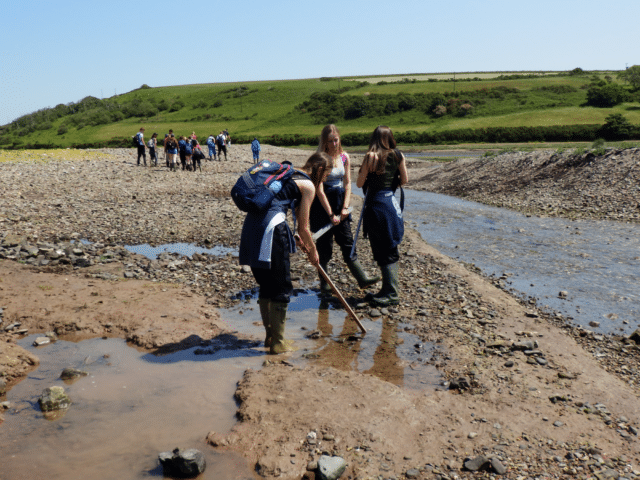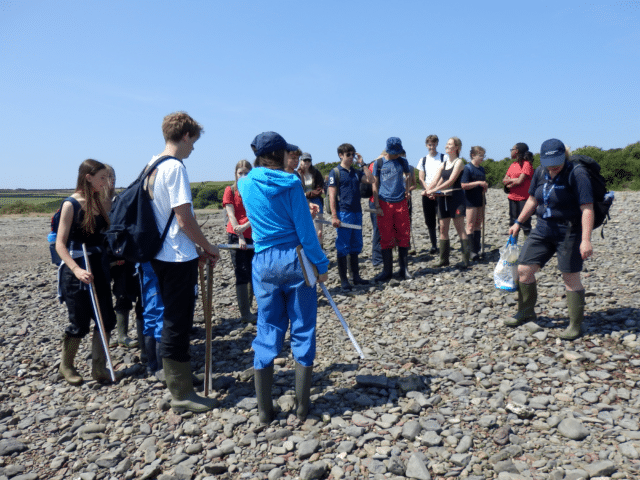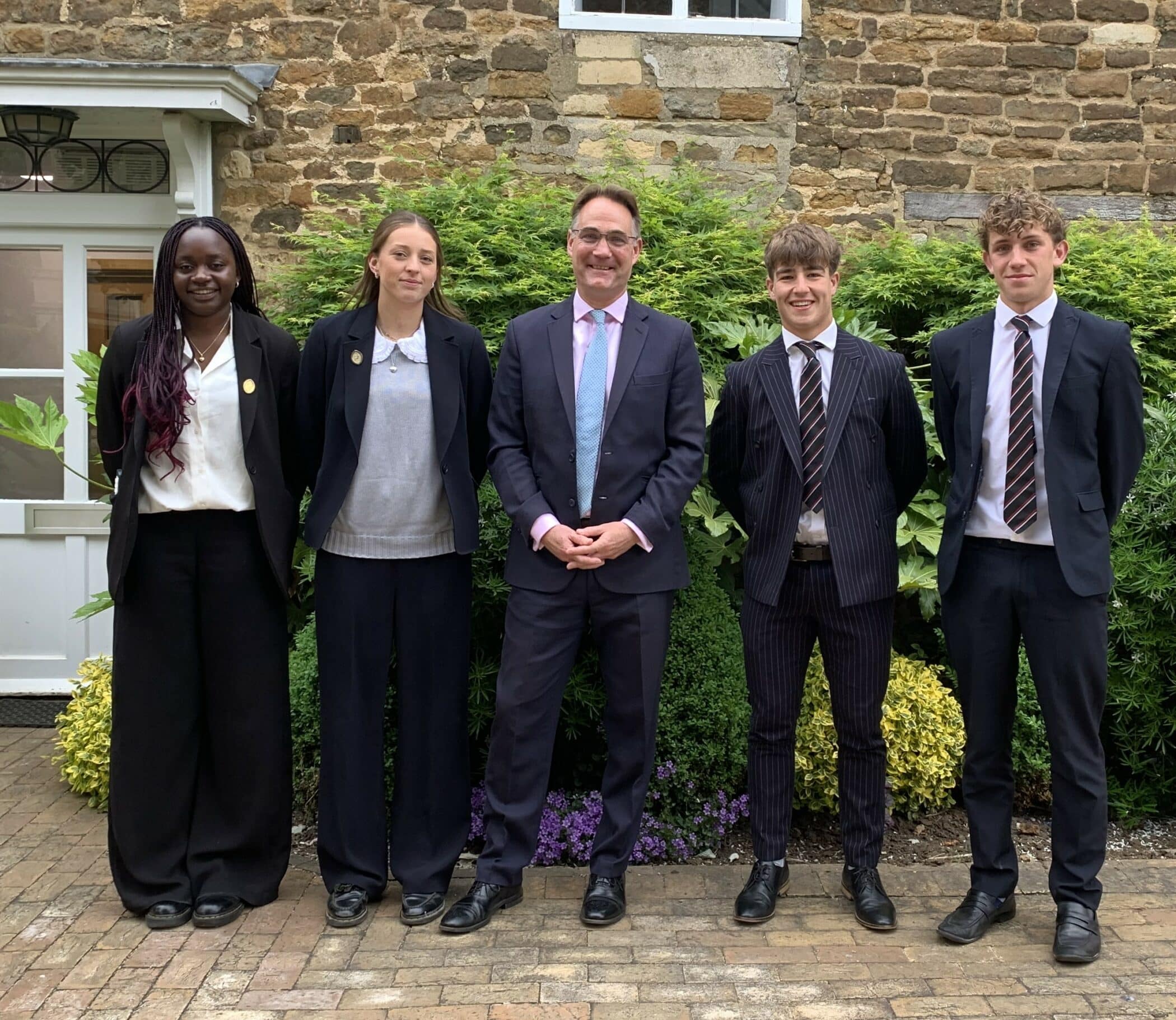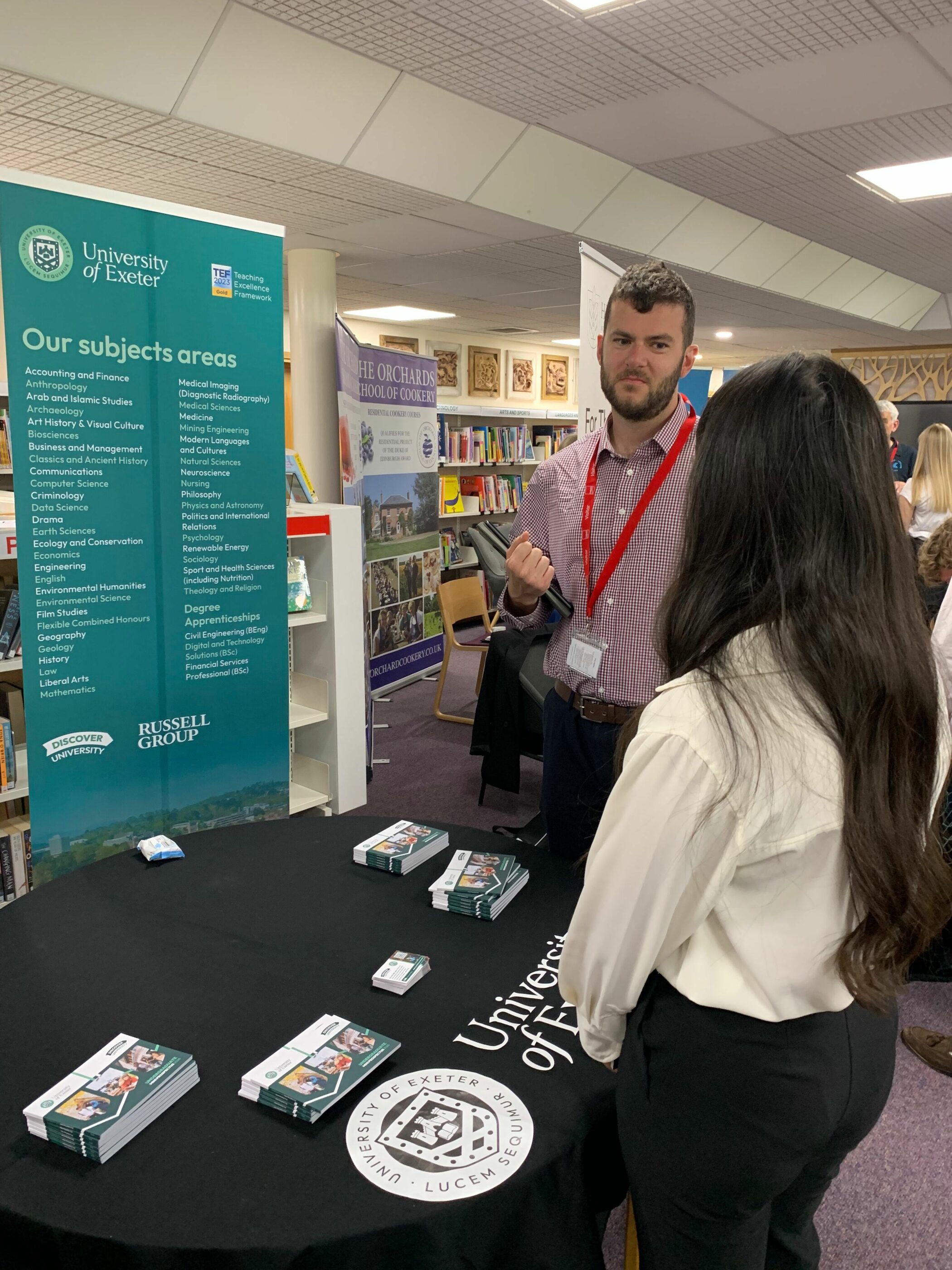

A group of Form 6 Biology and ESS students are on their field course at Dale Fort on the spectacular Pembrokeshire coastline.
Read the updates from the teachers below:
Day 1 Wednesday 7 June
Gorgeous weather and fantastic views to start the day.
The students learnt about haloseres (succession in a salt marsh) and then walked to The Gann saltmarsh to apply sampling techniques and learn how to use abiotic measuring equipment. They used these skills to measure biodiversity in this conserved SSSI (site of special scientific interest). After a day of hard work in the field (and a struggle not to get wellies stuck in the marsh) it was back to the classroom later in the afternoon to analyse their data, calculate Simpson’s Index Diversity and use the Spearman Rank Correlation test.
Day 2 Thursday 8 June
Another glorious morning of sunshine although a little breezier at Dale Fort.
We started the day with a lecture on sampling techniques and then put that into practice as we trialled the use of transects and quadrats.
We were surrounded by incredible biodiversity in such a small area and the students diligently sampled the grassy field for ribwort plantain whilst an orchestra of bird song from Whitethroat, Linnets and Goldfinch filled the air. A glimpse of the rare Chough completed the 1st session.
We then headed back to the classroom to learn about rocky shores before venturing out for a wonderful and inspiring afternoon identifying the many species that form complex food webs in the different zones.
Hours flew by whilst the students spent time identifying barnacles, periwinkles, whelks, seaweed and anemones (amongst others).
I am confident that the students can all now differentiate between pepper dulse and bladder wrack seaweeds or classify Gastropoda into Trochidae (top shell snails) or Littorina (periwinkles) depending on the shape of the operculum!
Day 3 Friday 10 June
Today saw IB Biologists and ESS pupils complete their intensive course on ecological techniques and biodiverse site visits to enable them to produce hypothesises and methods for their IA’s. Time continued to be of the essence and site visits were made taking account of MHW at Castle exposed rocky shore and Jetty – which are rarely ideal! Tides and time wait for no man…
Detailed project planning commenced, and trial methods completed. Frantic writing up followed to be in the best possible place for tomorrow’s data collection day 1 on the very wonderfully diverse habitats available within 10 minutes’ walk of this remarkable FSC centre. Sightings today included newts, dragonfly larvae (that take 5 years to mature underwater) and unfortunately rather a lot of flotsam and jetsom.
Saturday 11 June
IB6 pupils began their data collection proper for their individual projects following trial experiments yesterday. We were working at six different sites around Dale Fort – the coastal path, the salt marshes, woodland sites, grassland and rocky shore. Although Dale Fort is new to us, the ecology studied is well known, but pupils have been able to undertake new methods: one pupil has digitised their barnacle distribution data for counting on computer; another was able to investigate the ‘tenacity’ of a secondary consumer on the rocky shore; a third novel investigation centres around specialised halophytes as ‘pioneer species’. This evening, pupils are working on the tabulation and analysis of masses of results, all of which will be added into the long data sets at the Centre for ongoing climatic and environmental studies. IB EES pupils must incorporate an issue of global significance into their projects and this year, issues include the effect of man made structures on an ecosystem and the consequences of tourism on the local environment. Pupils’ responses have been generally positive, but several admitting they have ‘not had to work quite this hard before.’ The coursework component of the IB biology course is 20% and 25% for EES. We will be up until late tonight!
Sunday 12 June
All five skill areas of the School’s Connected Curriculum were successfully brought together in the final morning of this year’s annual biology residential field course. The final ‘t test’ was successfully calculated at 12.10pm, 5 mins before the course officially ended! Biology teachers were delighted that so many studies this year had produced statistically significant results with excellent progress being made by pupils in their use of ‘Excel’ to calculate running means, find standard deviations and plot graphs. IB6 scientists left Dale Fort today with an experience immeasurable in terms of research skills, perseverance and team work – time well spent bearing in mind coursework counts for 20% of the final mark in IB Biology and 25% in the IB ESS course. We are extremely grateful to our FSC tutor Nicki for her admirable mastery of the complex site logistics as well as her consummate knowledge of the local ecology. Biology teachers on the course were pleased to recognise Lisa Burkhalter and Zadie Berkin-Evans as ‘Best Field Biologists 2023’ for their quiet efficiency in carrying out the work, their generosity in helping fellow pupils and their good humour throughout the course. We look forward to working again with the Field Studies Council and the department hopes to organise a seminar evening at school next term to give pupils the opportunity of presenting their work. Cymru am byth!





